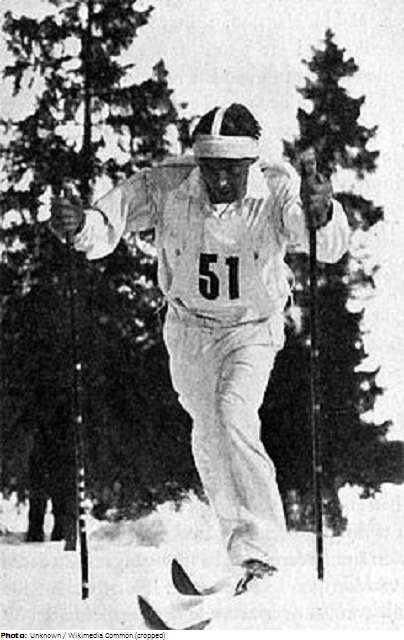
| Roles | Competed in Olympic Games |
|---|---|
| Sex | Male |
| Full name | Johan Artur•Häggblad |
| Used name | Artur•Häggblad |
| Born | 14 June 1908 in Nordmaling, Västerbotten (SWE) |
| Died | 16 June 1989 (aged 81 years 2 days) in Stockholm, Stockholm (SWE) |
| Affiliations | IFK Umeå, Umeå (SWE) |
| NOC |  Sweden Sweden |
| Medals | OG |
| Gold | 0 |
| Silver | 0 |
| Bronze | 1 |
| Total | 1 |
Artur Häggblad is best known for having won the Vasa ski marathon four times – 1933, 1935, 1937 and 1940. It is said that Häggblad preparing for his 1937 Vasa run by competing in two 50 km events just days before. He ran the third leg for the Swedish relay team that took bronze at the 1936 Winter Olympics in 1936. At the 1934 Nordic World Ski Championships in the Swedish town of Sollefteå he narrowly missed individual medals in the 18 and 50 km events, placing fourth in both, but won a bronze medal with the Swedish relay. At home, he was a three-time Swedish Champion representing IFK Umeå – 15 km and relay in 1935 and 50 km in 1937. Häggblad set a new world’s best time over 30 km of 1-20:07.
Häggblad made himself known for his blunt statements, and was known to be quite touchy by nature. Once at a championship race in Falun in the 1930s he was asked by the governor how the race had been and told him, “Run for yourself, you old bastard – so you can see how it feels.” Some sources claim that it was not the governor who Häggblad insulted, but King Gustav V. Another time in a radio interview he was asked if he had any message for the listeners and replied, “Yes, Nordic skiing is a dog’s life. I wish I was dead. Send the greetings to whom the hell you like.”
Häggblad became a merchant with a well-known sports store. He was featured in the documentary film “De sista skidåkarna” (The Last Skiers) in 1988, also known under the name “ Förra tidens människa” (Men of the Past).
| Games | Discipline (Sport) / Event | NOC / Team | Pos | Medal | As | |
|---|---|---|---|---|---|---|
| 1936 Winter Olympics | Cross Country Skiing (Skiing) |  SWE SWE |
Artur Häggblad | |||
| 18 kilometres, Men (Olympic) | 8 | |||||
| 4 × 10 kilometres Relay, Men (Olympic) | Sweden | 3 | Bronze |